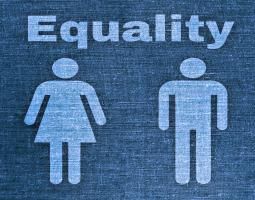Denmark is once again one of the best performing EU nations in the 2022 Gender Equality Index issued by the European Institute for Gender Equality (EIGE), trailing only Sweden, although there has been no noticeable improvement since last year.
With a score of 77.8 out of 100, it finished well above the EU average (68.6), but a fair way short of its neighbours (83.9).
The Netherlands, Finland and France completed the top five, while Greece was bottom (53.4), slightly ahead of Romania and Hungary.
To access the full report, click here.
Effect of the pandemic
EIGE head Carlien Scheele warns that the countries’ scores have not seen such a decrease in scores since 2010, but concedes that the pandemic is partly to blame.
“This requires urgent scrutiny, as our results show that specific groups of people, who tend to be in more vulnerable situations during times of crises, are most at risk. Clearly, stark gendered gendered inequalities compound the issue.”
Among the specific groups, the report clarified, are women with disabilities, older women, young women struggling to find employment, and women migrants.
Danish men less likely to pull their weight with childcare
Denmark scored well across five of the six parameters – health, work, money, time and power – but did suffer a setback in the category of knowledge: down 1.7 percentage points on the previous report, and down 3.9 on 2010. The pandemic made it harder for some women to balance studies with other responsibilities, the report concluded.
And it might surprise some to learn that childcare responsibilities in Denmark are anything but balanced, according to the index, as there is an 11 percentage point gap in favour of women engaging in at least one hour a day looking after children aged 0-12, and a 13 pp gap in regards to kids aged 12-17.
Denmark was respectively the second worst and worst in the EU for mothers being more likely to be caring for their children than fathers, even though the EU averages (90 and 86 percent for 0-12; 78 and 77 for 12-17) were very high.
Danish women likely to suffer psychological violence
Among the report’s other findings regarding Denmark, an index-high 60 percent of women in Denmark (along with Latvia) report experiencing some form of psychological violence.
On a more positive note, Denmark had the third best score (80.2) for engagement in social activities such as sport, cultural, leisure, voluntary or charitable activities.
And it also ranked in the top five for having a representation of close to 40 percent on company boards and in Parliament.














